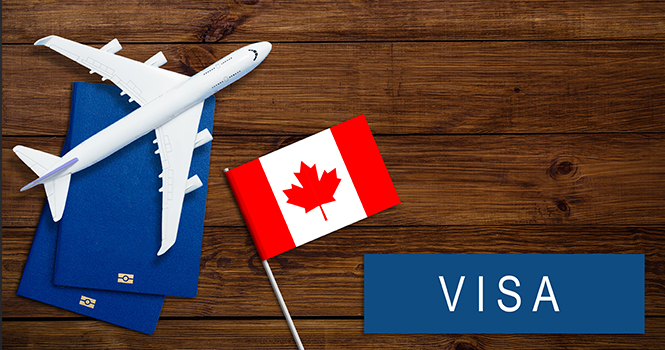
by Immilaw Team | Jan 15, 2024 | Canada Immigration
When a Post-Graduation Work Permit (PGWP) reaches its expiry, some international graduates may find themselves restricted in their avenues to stay in Canada. While the PGWP enables them to work in the country for up to three years, extensions can be limited in specific situations. Nonetheless, alternative pathways exist for these graduates aiming to extend their stay in Canada, although not all may immediately qualify for these options.
After PGWP expires, PGWP holders can explore various options to stay in Canada:
- Provincial Nominee Programs (PNPs)
- Atlantic Immigration Program (AIP)
- Rural and Northern Immigration Pilot (RNIP)
- Work permit
- New post-secondary program
Let us delve deep into these available options.
1. Provincial Nominee Programs (PNPs)
Provincial Nominee Programs (PNPs) play a vital role in assisting international graduates in Canada who are aiming to settle in a specific province. These programs offer various pathways to permanent residency.
Certain PNPs are called ‘enhanced’ and are part of the Express Entry system. Nominees through these enhanced PNPs receive 600 extra points, adding to the CRS score. Attaining such a high score improves an applicant’s chances of receiving an ITA for permanent residency during Express Entry draws.
Despite the challenges posed by the pandemic, Canada continued to conduct Express Entry draws for PNP recipients, allowing PGWP holders to benefit from faster processing times.
For PGWP holders lacking work experience in occupations eligible for Express Entry, ‘base’ PNPs offer an alternative. These programs often welcome candidates falling under TEER categories 0, 1, 2, and 3, as the NOC classifies. This allows individuals without specific work experiences to qualify and apply through these provincial streams.
2. Atlantic Immigration Program (AIP)
AIP assists recent graduates from Atlantic post-secondary institutions in becoming permanent residents, offering an opportunity for PGWP holders to stay in Canada before their permit expires.
Eligibility criteria
- Completing a qualifying program lasting a minimum of two years.
- Possess a job offer in Prince Edward Island, New Brunswick, Newfoundland and Labrador or Nova Scotia.
- The job offer must be classified within TEER categories 0, 1, 2, or 3.
Eligible international candidates stand to gain several advantages from this program. There is no obligation for a minimum work experience requirement, offering more flexibility. Moreover, the program permits PGWP holders to apply before they start working, providing an early entry point. This feature is beneficial for individuals who may need to accumulate more work experience by the time their permit expires, offering them an opportunity to pursue permanent residency.
3. Rural and Northern Immigration Pilot (RNIP)
Graduates from publicly funded post-secondary institutions in one of eleven specified rural communities in Canada may qualify to apply for the Rural and Northern Immigration Pilot (RNIP).
Eligibility Criteria
- Completing a master’s degree or a post-secondary program lasting at least two years.
- Candidates must have resided for a specified duration in the community outlined by the program.
Furthermore, each rural community sets its specific eligibility criteria for applicants intending to apply through their program; please check the particular requirements of each community.
4. Work permit
Obtaining a work permit in Canada involves employers undergoing a lengthy and expensive Labour Market Impact Assessment (LMIA) process. However, there are alternative routes to secure a work permit that does not require an LMIA.
International Mobility Program (IMP) allows Canadian employers to hire temporary foreign workers without needing an LMIA. To qualify for an LMIA-exempt work permit, the job offered must provide broader economic, cultural, or competitive benefits to Canada, with reciprocal advantages for Canadians and permanent residents.
Additionally, if you qualify to apply for PR before your PGWP expires, you might be eligible for a bridging open work permit. This special permit enables you to continue working while processing your PR application.
5. Joining for an additional post-secondary program
Joining a new academic program at a Canadian college or university allows you to prolong your stay in the country while working part-time, up to 20 hours per week. This opportunity enables you to balance studies and employment, contributing to your experience in Canada. As a temporary measure, this method helps individuals who fulfil the Express Entry criteria but are awaiting an ITA to remain in Canada.
If your work permit is expired or your status is not maintained, you cannot continue working in Canada. Valid status is crucial for staying legally in the country. Therefore, ensuring a valid work permit or maintained status is essential for ongoing employment and residency in Canada.
The article offers general information and does not constitute legal, financial, or professional advice. Seek guidance from a professional advisor for specific assistance. While we aim for accuracy, we cannot guarantee complete precision. Author opinions may change over time. ImmiLaw Immigration and its affiliates do not explicitly or implicitly endorse third-party advice, opinions, information, products, or services.
At ImmiLaw Immigration, our experienced team comprises proficient immigration lawyers with extensive Canadian laws and regulations expertise. Get in touch with us to explore your options for staying in Canada after your PGWP work permit expires.
Free Immigration Assessement Form
Feel free to contact us.

by Immilaw Team | Jan 10, 2024 | Canada Immigration
After completing their studies, many international students strongly prefer settling in Canada. The country actively encourages international students to pursue PR through various tailored immigration pathways.
To be eligible for many Provincial Nominee Programs (PNPs) designed for international students, having a valid PGWP is usually a requirement. Graduates from accredited institutions with study programs lasting at least one year can apply for this permit upon completion. It is important to note that you must apply for the PGWP within just 90 days after graduation. After obtaining your PGWP, you can live and work anywhere in Canada.
Let us find out the provinces that are best suited for permanent settlement.
PNPs For International Students In Their Study Province
The Provincial Nominee Programs (PNPs) in Canada serve as a means for individuals aiming to achieve Canadian permanent residency and are interested in settling in a particular province or territory.
Each province and territory within Canada has its own PNP, structured to address its distinct economic and demographic requirements.
PNPs enable a province to select a foreign national for Canadian permanent residency. With a nomination, the individual can then apply officially for permanent residence!
-
Manitoba Career Employment Pathway
Graduates who complete a post-secondary educational program in Manitoba may qualify for an immigration route through the Career Employment Pathway. The completed program should be at least one year and finished within the last three years. Eligible candidates must secure a full-time job offer from a Manitoba employer in one of the province’s in-demand occupations.
-
Ontario Masters & PhD Graduates
Graduates who finish a master’s or doctoral degree at a recognized institution in Ontario can seek provincial nomination through this specific stream. Individuals can submit an Expression of Interest (EOI) profile to Ontario’s candidate pool to receive an invitation to apply for nomination.
-
BC International Post-Graduate Category
Graduating with a master’s or doctoral degree from an eligible institution in British Columbia allows you to apply directly for provincial nomination through this stream. This pathway’s significant advantage is that you do not need a job offer to apply.
-
Atlantic Immigration Program (AIP)
The Atlantic Immigration Program (AIP) is an alternative pathway for international students seeking PR in Atlantic provinces. AIP targets recent graduates who have completed a qualifying program of at least two years within one of the Atlantic provinces and possess a job offer in New Brunswick, Nova Scotia, Prince Edward Island, or Newfoundland and Labrador.
Notably, this program exempts eligible graduates from the usual work experience requirements, enabling them to apply immediately after graduating, even before starting work.
Moreover, the Atlantic provinces are developing study-to-stay programs to support international students during their Canadian studies. These programs offer career guidance, training, and networking opportunities. Additionally, most of these provinces have their own PNP streams designed to facilitate permanent residency for international graduates.
PNP Choices for Graduates Outside the Province
Many international students may graduate from an institution in one province and receive a job offer in another province. Several PNPs cater to this scenario specifically. The listed PNPs below are intended for international graduates from institutions across Canada.
These programs commonly require two essential elements:
- You will need a valid PGWP.
- You must work for an employer in the province where you are applying with a valid job offer.
Ontario international students
International students who complete a post-secondary program in Canada and hold a valid job offer from an Ontario employer may qualify for this PNP. For eligibility in this PNP, your Canadian education must have lasted at least two years or necessitated a prior degree. This applies if you possess a valid job offer from an Ontario employer.
BC International Graduate Program
The program might suit you if you finished a post-secondary program anywhere in Canada and now have a job offer from a company in British Columbia. However, eligibility requires having two years of full-time work experience in a similar role to the job offer.
Newfoundland and Labrador International Graduate Program
The program is for those who have completed a post-secondary program lasting at least two years anywhere in Canada and are presently employed in Newfoundland and Labrador. The eligibility criteria are working in the province for at least one year on a PGWP.
In conclusion, while PNPs offer valuable routes for international students to attain Canadian PR based on their education and job offers in specific provinces, it’s important to remember that they are not the only immigration option available. Exploring additional pathways like the Canadian Experience Class within the Express Entry system, especially after gaining one year of Canadian work experience, opens up further opportunities for achieving PR in Canada. It’s advisable to thoroughly examine and consider the eligibility criteria for various programs to determine the best path aligning with your circumstances and aspirations for becoming a Canadian permanent resident.
At ImmiLaw Immigration, our seasoned team, consisting of immigration lawyers and consultants, offers support for study permits, second program selection, post-study pathways, and diverse immigration requirements. Contact us to pave your path toward a brighter future in Canada.
Book an appoinment

by Immilaw Team | Jan 5, 2024 | Canada Immigration
Canada warmly embraces millions of global students every year. Notably, 2022 was labelled a “record-breaking year” for visa applications by Canadian immigration. Increasingly, students aspire to settle in Canada after their studies, eyeing Permanent Residency (PR) status. Interestingly, for international students, there is a compelling option to keep their PR dream alive: choosing a second Canadian program! This choice opens doors to fresh advantages and opportunities that might otherwise be tough.
Advantages of Enrolling in a Second Program in Canada
Let us explore the advantages of enrolling in a second program in Canada:
1. Extended Post-Graduate Work Permit (PGWP)
Students opting for a second-year program will get a longer post-graduate work permit (PGWP). A single year of study grants only a one-year PGWP. However, committing to 2-3 years of study can secure up to 3 years of PGWP. It is essential to note that they have only one chance to apply for a PGWP. Hence, extending their study plan is a smart move, particularly if they lack adequate prior work experience.
2. Extra CRS Score for PR Application
Canadian qualifications are a big plus to boost your Comprehensive Ranking System (CRS) score. These qualifications are significant in the CRS score, which is crucial for your PR application. Longer study periods increase your CRS score, making it more likely for you to be selected in the express entry pool. Each extra education level you achieve can earn you between 15 to 30 CRS points, making your PR application stronger.
3. Enhances Skillset
Canada’s top-notch education equips students to thrive in its diverse culture. Longer studies upgrade skills, keeping you competitive. Moreover, skill transferability can add a maximum of 100 points to the CRS score. So, extending your studies enhances your skill set, further strengthening your profile.
4. Expanding career options
Studying for 2-3 or more years in Canada offers valuable insights for students, exposing them to diverse career opportunities. This exposure helps students easily change careers or choose their best career path.
How to choose a Second Program?
Selecting a second program for international students in Canada requires strategic planning. You may consider these options:
Targeted Occupations:
Choose a study program that may lead to in-demand occupations and thus enhance your chances of receiving an Invitation to Apply (ITA) under the Express Entry system.
Provincial Nomination Options:
Explore programs in provinces offering nomination pathways for international students. Some provinces offer better immigration programs for international students.
Rural Immigration Programs:
Consider programs in regions supporting Rural Immigration Programs. Some regional programs offer international students unique pathways to permanent residence.
Professional Guidance:
Seek advice from a Canadian immigration lawyer specializing in study-to-migrate programs. Their expertise can ensure that you make informed choices and overcome the complexities of the Canadian immigration landscape efficiently
Conclusion
In conclusion, international students aiming for a second program in Canada should approach their choice strategically since opting for a second program opens the door to numerous opportunities in Canada. A second program in Canada offers longer work permits, boosts CRS scores, enhances skills, and aids in career flexibility. Extending studies strengthens students’ competitiveness. Careful planning and guidance are crucial for making informed decisions, driving them closer to achieving Canadian PR goals.
At ImmiLaw Immigration, our seasoned team, consisting of immigration lawyers and overseas study specialists, offers support for study permits, second program selection, post-study pathways, and diverse immigration requirements. Connect with us to pave your path toward a brighter future in Canada.
Feel free to contact us for your queries.
Book an appoinment

by Immilaw Team | Nov 27, 2023 | Canada Immigration
When applying for a visitor visa, knowing the potential grounds for refusal is essential. Among these reasons, one common cause for rejection is the inability to assure immigration authorities of your intention to depart from Canada after your authorized stay. Having solid proof, such as documents, is crucial to demonstrate your intent to comply with the visa regulations.
The decision of whether to accept or refuse a visa depends on how the immigration officer views your application. If officers suspect you won’t depart Canada after your authorized stay, they might reject your visa. It’s the applicant’s responsibility to prove they meet all visitor visa requirements.
Hence, applicants must show their commitment to returning after their authorized stay by:
- Establishing ties to their residence (like family, social ties, and community involvement).
- Providing evidence of personal assets, employment, and financial status in their home country.
- Clearly stating the purpose of their visit to Canada.
An immigration officer may refuse a visitor’s visa application if they have doubts about the applicant’s intention to depart at the end of the authorized stay.
Free Online Canadian Immigration Assessment
Factors Leading to Visitor Visa Refusals
1. Applicant’s Lack of Ties to Home Country
Insufficient evidence of ties like employment, dependent family, or property at home might lead to concerns about not returning after visiting Canada. Providing employment confirmation, residence proof, and dependent details is crucial.
2. Purpose of Visit Not Clearly Stated
Lack of detailed information about the purpose of the visit might result in visa refusal. Submitting documentation such as invitation letters or event specifics can support the application, especially if the stay is for a specific event.
3. Inadequate Financial Resources
Visa refusals might occur if there’s doubt about the applicant’s ability to finance their return trip or if the sponsor lacks adequate finance to support the visit to Canada.
4. Limited travel history
Previous visa refusals or overstay incidents elsewhere could lead to a rejection. Limited travel history also raises concerns about the likelihood of returning home after the authorized stay in Canada.
5. Misleading Information
Any false or misleading information, whether intentional or not, can lead to visa refusal. It’s essential to fill out forms accurately and provide the necessary documents to avoid misrepresentation issues.
ImmiLaw Immigration is a Canadian licensed immigration law firm with a dedicated team of Immigration lawyers. If you plan to visit your close family and friends in Cannada, we’re here to assist you throughout the process.
Please contact us for any questions or assistance regarding your Canadian r Visa application.

by Immilaw Team | Nov 6, 2023 | Canada Immigration
Nova Scotia, a province in Atlantic Canada, is set to embark on a groundbreaking initiative to bolster its construction industry. The province is launching the Critical Construction Worker Pilot, a pioneering immigration program. The program aims to address the persistent labour shortages affecting 21 essential occupations within the construction sector. This strategic move not only underscores Nova Scotia’s commitment to meeting the industry’s demand but also heralds an innovative approach to resolving employment challenges within the region’s thriving construction landscape.
Free Immigration Assessment
Requirements for the Critical Construction Worker Pilot Program
The Critical Construction Worker Pilot – Job Offer Pathway is exclusively for individuals who have received offers for permanent, full-time employment from a Nova Scotia-based business.
To be eligible, you must:
To be eligible, you must:
- Possess one year of work experience relevant to the job.
- Hold either a high school diploma or evidence of completion of a construction-specific industry training program.
- Age must fall between 21 and 55 years.
- Prove language proficiency equivalent to CLB Level 5 for NOC TEER 0, 1, 2, 3, or CLB Level 4 for NOC TEER 4 and 5, even if English or French is your first language.
- Provide documents proving sufficient financial funds to settle in Nova Scotia.
Immigrate to Canada
In addition to the previously stated requirements, the job offer must also align with the approved National Occupational Classification (NOC) codes outlined below:
- 70010 – Construction managers
- 70011 – Home building and renovation managers.
- 72011– Contractors and supervisors, electrical trades and telecommunications occupations.
- 72014 – Contractors and supervisors, other construction trades, installers, repairers and servicers.
- 72020 – Contractors and supervisors, mechanic trades.
- 72106 – Welders and related machine operators
- 72200 – Electricians (except industrial and power system)
- 72201 – Industrial electricians
- 72310 – Carpenters
- 72320 – Bricklayers
- 72401 – Heavy-duty equipment mechanics
- 72402 – Heating, refrigeration, and air conditioning mechanics
- 72500 – Crane operators
- 73100 – Concrete finishers
- 73102 – Plasterers, drywall installers, finishers and lathers
- 73110 – Roofers and shinglers
- 73200 – Residential and commercial installers and servicers.
- 73400 – Heavy equipment operators
- 75101 – Material handlers
- 75110 – Construction trades helpers and labourers
- 75119 – Other trades helpers and labourers
If you are considering applying for Nova Scotia’s Critical Construction Worker Pilot Program, we encourage you to contact ImmiLaw Immigration today. Our team consists of competent and experienced immigration professionals, including lawyers, licensed paralegals, and consultants, all committed to providing exceptional service. Don’t hesitate—reach out today and let ImmiLaw Immigration’s dedicated team guide you through the process with expertise and care.
Feel free to contact us for your queries.
Read To Know: Nova Scotia to Enhance Immigration Options for Healthcare Professionals

by Immilaw Team | Nov 4, 2023 | Canada Immigration
In a landmark September declaration by Nova Scotia’s Minister of Health, Michelle Thompson, and the province’s Minister of Advanced Education, Brian Wong, Nova Scotia is all set to transform immigration policies for foreign nationals. Immigrating to the province is about to become more accessible with the expansion of Nova Scotia’s “International Graduates in Demand” (IGD) stream within the Provincial Nominee Program (PNP).
Free Immigration Assessment
This strategic move opens the door to prospective international students aspiring to pursue careers as paramedics and pharmacy technicians, making immigration to Nova Scotia an achievable goal for them.
International Graduates in Demand (IGD) stream
Provincial Nominee Programs (PNPs) operate across all Canadian provinces and territories except Quebec and Nunavut. PNPs empower local governments to choose and put forward immigration candidates. These selected candidates are intended for permanent residence (PR) status in their regions. The primary objective of these nominations is to tackle localized labour market shortages and fulfill specific workforce requirements.
Immigrate to Canada
Before this recent expansion, international graduates aspiring to work in the following occupations had the opportunity to immigrate to Nova Scotia through this PNP stream.
As a result of this announcement, the newly added categories include:
- Nurse aides, orderlies, and patient service associates (NOC 2021: 33102)
- Early childhood educators and assistants (NOC 2021: 42202)
- Paramedics (NOC 2021, “Paramedical Occupations”: 32102)
- Pharmacy Technicians (NOC 2021: 32124)
Qualification
To qualify for immigration through this specific stream of Nova Scotia’s Provincial Nominee Program (PNP), interested candidates must fulfill the following criteria:
- Hold a full-time permanent job offer from a Nova Scotia employer in an eligible occupation.
- Fall within the age range of 21 to 55.
- Must have completed a high school education or its equivalent
- Completed a course of study lasting at least 30 weeks within the past three years
- Possess the requisite certifications for the job.
- Have official language proficiency equivalent to a level 5 on the Canadian Language Benchmark (CLB).
- Sufficient financial resources to establish a permanent residence in Nova Scotia.
- Candidates must complete at least 50% of the eligible educational program in Nova Scotia.
How to apply through IGD PNP for Immigration
You may apply for immigration through IGD PNP by three simple steps:
1. Online Application Submission:
Begin by uploading all the necessary documents and submitting a completed application through the government’s official website.
2. Provincial Nomination Approval:
If your application is approved, you’ll receive a provincial nomination certificate.
3. Apply for Permanent Residency (PR):
With your provincial nomination in hand, you may apply for Permanent Residency (PR) directly through Immigration, Refugees, and Citizenship Canada (IRCC). But remember to submit your application within six months of receiving your provincial nomination certificate.
For added flexibility, applicants can request a Letter of Support for a temporary work permit from the Nova Scotia Office of Immigration (NSOI). This allows them to reside in Nova Scotia while their immigration application is being processed.
Demand for Paramedics and Pharmacy Technicians in Nova Scotia
According to the CEO of Nova Scotia’s Pharmacy Association, the province will require approximately 200 more pharmacy technicians in the coming years.
Charbel Daniel, the director of operations for ambulance services provider Emergency Medical Care Inc., mentioned that there may be an opportunity for an extra “150 to 200 paramedic positions” for international students.
In addition to including two occupations in the IGD stream of Nova Scotia’s PNP, there is a substantial demand for individuals seeking employment in various healthcare occupations throughout Canada.
Other In-Demand Healthcare Professions
As of 2023, the top three in-demand healthcare careers in Canada, according to employment agency and consulting firm Randstad, are:
- Registered Nurses (NOC 2021: 31301)
- Personal Support Workers (NOC 2021: 44101)
- Healthcare Aides** (NOC 2021: 33102)
Healthcare Aides can immigrate to Nova Scotia through the IGD stream, as mentioned earlier.
The statistics emphasize the continued demand for healthcare professionals in both Canada and Nova Scotia. As per the Government of Canada, the anticipated number of job openings from 2022 to 2031 is as follows:
- Registered Nurses: 155,400
- Personal Support Workers: 34,500
- Healthcare Aides: 191,000
Category-based Draw for Healthcare professionals
IRCC has launched category-based Express Entry draws, with the initial draw occurring on June 28, 2023. The authorities implemented these draws to attract additional healthcare workers who can actively contribute to Canada’s critical labour market needs.
In 2023, IRCC is actively engaged in conducting category-based draws aimed at issuing Invitations to Apply (ITAs) to eligible candidates. These candidates must possess recent work experience in one of five distinct occupational categories. Notably, one of the categories outlined for 2023 is dedicated exclusively to foreign nationals with recent work experience in healthcare professions. This initiative underscores Canada’s commitment to addressing its healthcare workforce needs through its immigration system.
Two Healthcare Category-Based Draws in 2023
Canada has carried out two healthcare category-based Express Entry draws within the current year.
The initial draw occurred on June 28, extending Invitations to Apply (ITA) to 500 candidates for Canadian Permanent Residency. Candidates with a Comprehensive Ranking System (CRS) score of a minimum of 476 were eligible for this draw.
The second draw in this category took place on July 6, where 1,500 candidates with a minimum CRS score of 463 received invitations.
Nova Scotia is gearing up to broaden the scope of its Provincial Nominee Program (PNP) through the expansion of the “International Graduates in Demand” (IGD) stream. Bringing new horizons to Nova Scotia, this expansion opens doors for healthcare workers to start their promising journey toward Canadian immigration.
Feel free to contact us for your queries.
Read To Know: Business Visitors And Letter Of Invitation For Bringing Them To Canada







